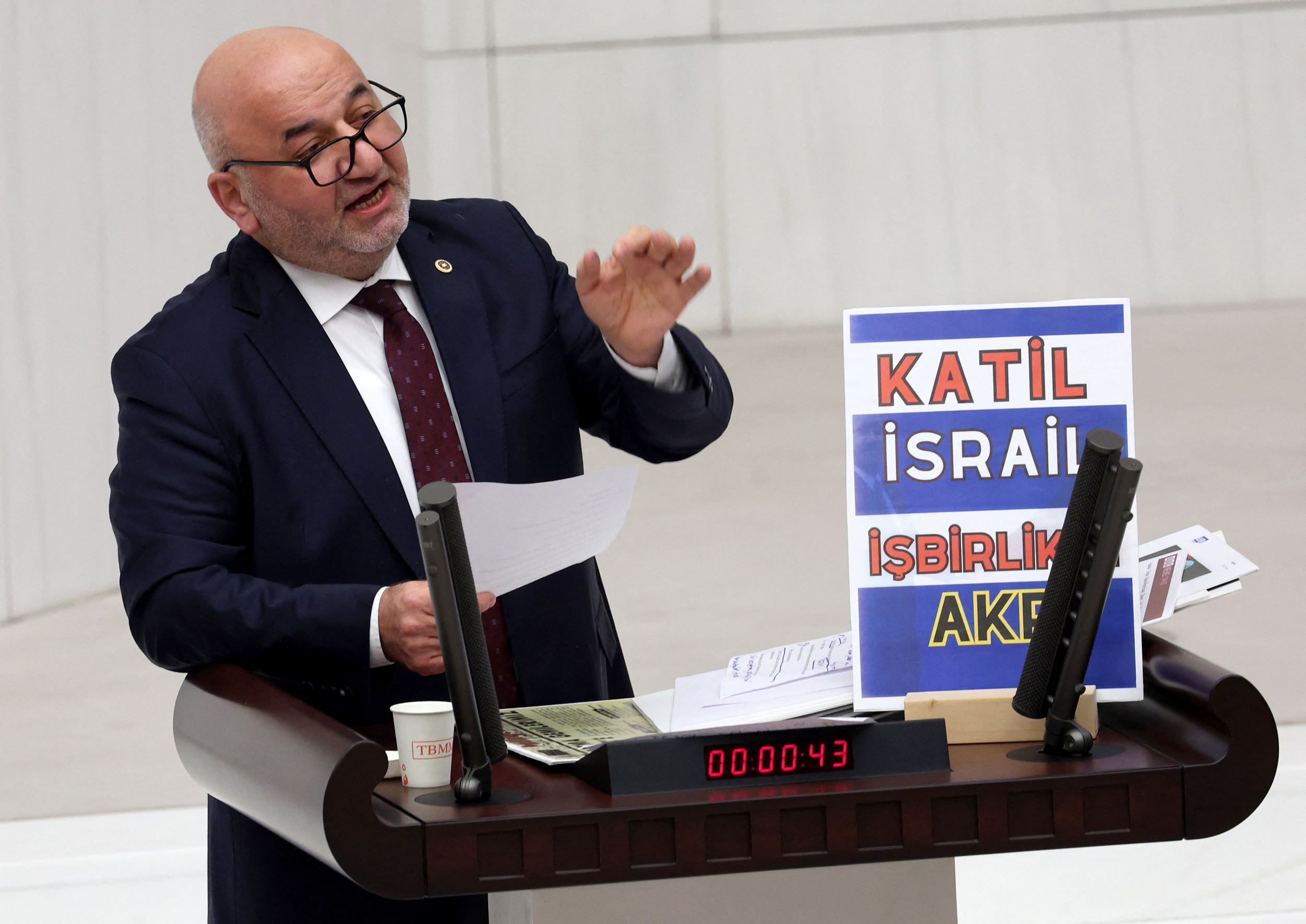Islamic Ramadan dinner promotes peace and aids earthquake victims in Turkey
As we approach the end of the fasting month of Ramadan, Muslims around the world look forward to Eid al Fitr, which is possibly this coming Saturday depending on the sighting of the moon.
During my childhood in Syria, Ramadan was a time for families and friends to gather at the breaking of the fast dinner and celebrate another day of the Islamic tradition. The practice is meant to increase awareness of self discipline and self control — no food or water from sunrise to sunset every day for an entire month.
The Iftar meal was massive, like Easter or Passover dinner, and we had it every night for weeks! Then before sunrise, we got up and gorged ourselves again. Ramadan is one of those traditions I miss about my Damascus home, but recently, those sweet and important memories returned.
On Thursday, the Turkish Cultural Institute in Wayne, along with Peace Islands Institute in Hasbrouck Heights, sponsored the annual Ramadan Friendship Dinner at the Chart House restaurant in Weehawken.
Proceeds from the event were designated to help earthquake victims in Turkey and Syria. The 7.8-magnitude quake on Feb. 6 caused massive widespread damage and more than 50,000 deaths.
Overlooking the Manhattan skyline, 160 people of all faiths celebrated the Islamic holy month. According to Adam Ozdemir, Executive Director of Peace Islands Institute, the purpose of the dinner was beyond imperative.
“Tonight, we all come together to share humanity,” Adam Ozdemir told NJ Advance Media. Ozdemir is executive director of Peace Islands Institute. “Ramadan is a time for Muslims to be kind to one another and others, and also to think of the less fortunate.”
“We must build bridges to promote dialogue and peace,” Ozdemir continued. “Ramadan gives me the discipline to do that and to serve my community. Fasting allows me to look inward, so I can go outward and help my fellow human beings, like victims of the recent earthquake.”
Phil Latronico, a Catholic priest in attendance from Wildwood, shared a similar outlook.
“We wanted to show our Muslim brothers and sisters that we are here to support and love them, especially after the earthquake tragedy.”
When the food arrived, the salmon was tasty enough, though incomparable to my Ramadan binges of childhood, where my siblings and I devoured the stuffed grape leaves, kibbeh, (lamb and bulgar wheat stuffed with pomegranate seeds, pine nuts and onions) and the more familiar accompaniments of humus, baba ghanoush (eggplant dip), falafel, za’atar (wild oregano) and Jebna (white cheese).
Like most people, my momma went overboard cooking for hours every day. She also made that special Ramadan drink: Qamar al-Din (Apricot essence). And no fasting holiday would be complete without her delicious maamool (Arabic Cookies), stuffed with dates and pistachios. (I don’t know if your mouth is watering, but mine is!)
But of course, Ramadan is not only about the food. Like Easter in Christianity and Passover in Judaism, Ramadan is the most significant spiritual holiday in the Islamic world. During that month, much self-reflection and prayer takes place. To accommodate that, businesses close early, schools delay opening and most travel comes to a halt. If you live in an Islamic country, you know not to schedule any concerts, art openings, readings or any cultural event during Ramadan.
In short, Ramadan is a beautiful way to align the spiritual aspect of your life with the physical ritual of fasting, again akin to the Christian Lent and the Jewish Passover.
The Ramadan Friendship Dinner lived up to the name; all were cordial and in good spirits including Karissa Hahn, sergeant with the Somerset County Sheriff’s Department, along with her fiancé, Kelsey Florczak. The two summed up the evening well.
“It’s important for all communities to come together,” Hahn said. “We need to help and support each other, especially after disasters like the earthquake. Now, I can take the kindness I’ve experienced here back to my community.”
Then, very simply, Florczak added: “It doesn’t matter what your race, gender or faith is; what matters is that everyone comes together and love one another.”
Karim Shamsi-Basha may be reached at [email protected]. Follow him on Twitter & Instagram. Find NJ.com on Facebook.


